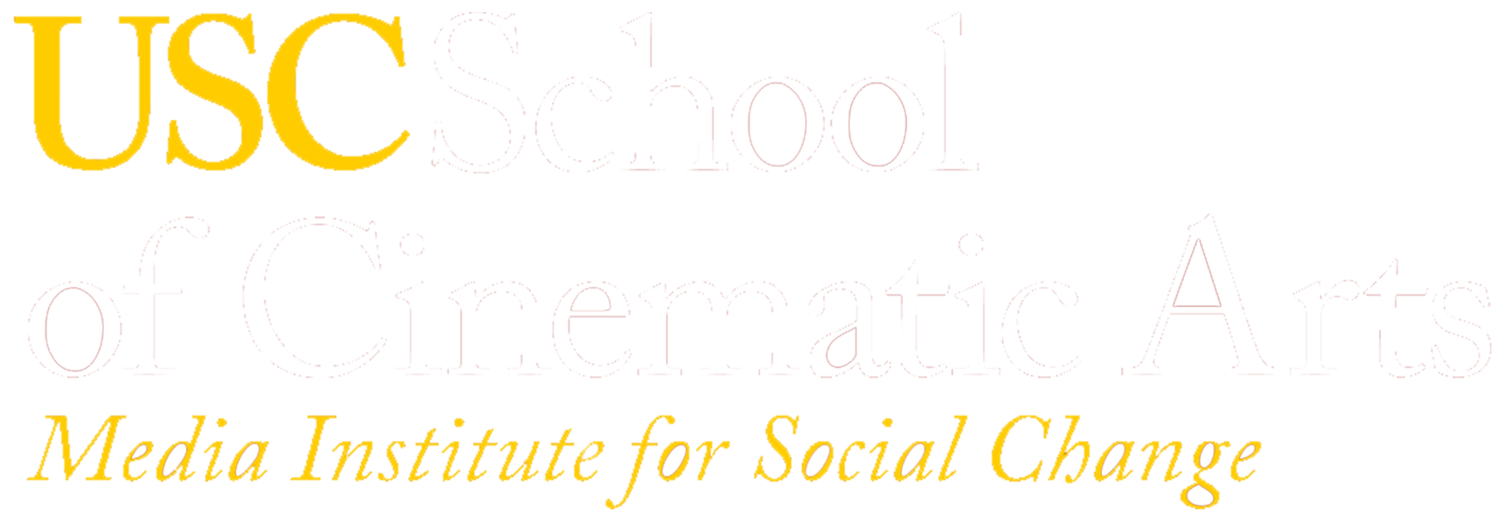The Media Institute for Social Change: Positively Entertaining
/Bringing Messages of Positive Social Change into the Entertainment Industry
By Valerie Turpin, InMotion Magazine
Can a film with a deep, challenging message still be entertaining? USC's Media Institute for Social Change (MISC) is out to prove that it's not only possible, but it's the responsibility of media makers to think about larger issues.
Formed in 2011, the Media Institute for Social Change promotes positive social change through three main components: by offering scholarships to students dedicated to the promotion of social change, acting as a service to professional filmmakers who are promoting positive social change in their works and conducting research to measure the cultural impact of these films. Production Division Chair Michael Taylor launched the Institute to accomplish these goals and serves as the Institute's executive director. Peter Samuelson, a film producer with a wealth of experience in both film and social issues, has come on board to further the efforts of the Institute. Through its inception, the Institute has led to a successful course and several collaborations with other groups interested in facilitating positive social change within the industry.
Taylor asserts that, if students could learn film's power in creating and promoting a positive message to the public, it would serve them throughout their careers. MISC therefore features a course each spring semester taught in the Production Division by Professors Michael Taylor and Jeremy Kagan, which allows each student to make a film based on the social issue of his or her choosing. Its content is discussed and refined throughout the semester so that each student can convey his or her message for social change in the most effective way possible. The class also invites professional filmmakers to discuss their projects that have incorporated messages of social change, which has included SCA alum '86 Jay Roach (The Campaign, Meet the Parents) for his work on Game Change.
MISC's involvement doesn't end in the classroom. The Media Institute for Social Change is proud to be involved with TrueSpark, a non-profit, charitable organization that uses films with inspiring, positive messages to counter the threat of harmful media exposure, by helping screen films to youths, and the Geena Davis Institute on Gender in Media, a research-based organization working within the industry to educate on the need for gender balance, reducing stereotyping and offering a variety of female characters for entertainment, targeting children 11 and under. Several SCA students have further aligned themselves with MISC's goals by using their skills to create an episode on gender studies for Geena Davis's television series on PBS.
The Media Institute for Social Change will continue its efforts to bring positive social change into entertainment. With MISC's help, the next generation of media makers and professionals will be more aware of their responsibilities and opportunities to make a difference with their work.
MICHAEL TAYLOR ON THE IMPORTANCE OF MISC
"As filmmakers, the work that we do has a huge impact on our culture. With that comes an opportunity, and maybe even a responsibility, to use that impact for greater good. [We want] to be involved with training the next generation of filmmakers who will go into the industry and will hopefully take with them a mindset that, when they make films themselves, they can be weaving those social issues into their films and television shows. We don't often think of the value of media beyond its entertainment, but there is a whole area that has to do with education through entertainment, and that's what the Media Institute seeks to do."
John Berardo, MFA Production '13
"I took [CTPR 499- Making Media For Social Change] because I really wanted to make a movie that used ideas of social media and how that could be implemented into a horror film. The class not only informed me on the many ways of how people (the audience) receive information when being 'told what to think' by films, it also challenged the notion of why I even make movies. [The course] made me realize that all movies worth watching in today's world should have a social message. Audiences are too sophisticated to be only entertained; people need their daily lives put before them and asked why they do what they do."
Maury Shessel, MFA Production '13
"I believe that art in any form should have a message to it. So many films today leave me empty because they are just showcasing the spectacle of the images on screen. Socially conscious films transcend the theatrical experience. They stay with me far longer than the awe I feel from seeing great special effects. Having a message and knowing how to execute it effectively is the difference between high and low art. This is what I came to USC to learn, and this is what the class provided." - See more at: www.USCMISC.org




